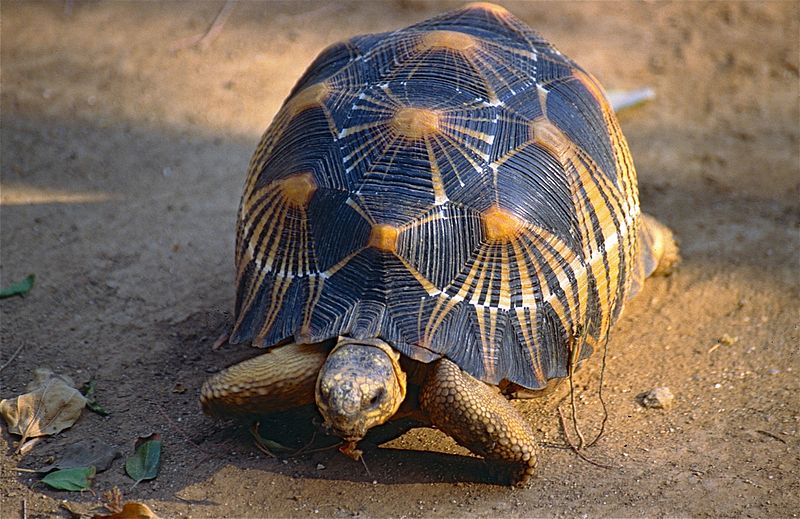
In 2018, wildlife officials in Madagascar raided a house that had over 10,000 illegally harvested radiated tortoises living in deplorable conditions with no food or water sources. This was just one poaching bust out of many that occur year after year, as demands for this species as a pet has not slowed down. This species is considered critically endangered by the IUCN.
This species has a very high-domed carapace (upper shell). Endemic to southern Madagascar, radiated tortoises are extremely vulnerable to habitat loss. As suitable habitat continues to be converted to other uses, such as charcoal production, this tortoise will continue to decline. This species is also highly desirable as a pet and food source, and it is estimated that 45,000 are harvested every year. Additionally, tortoises are long lived, slow maturing species. For this reason, removing adults from the wild greatly impacts the growth of the population.

Radiated tortoises can only be found on the southern part of Madagascar, and estimates show that they have disappeared from 40% of their past range. The IUCN considers them a critically endangered species, with population models showing possible extinction in 45 years. Captive tortoises, such as the ones at our Zoo, help ensure that this beautiful tortoise doesn't disappear from the planet forever.

Andrea
Male radiated tortoises will fight with one another during the mating season, attempting to push each other onto their backs.
Southern Madagascar
Dry thorn forests, woodlands
1–1.5 feet | Up to 35 pounds
Grass, fruits, succulents
Humans
Shell
3–12 eggs per clutch
Critically Endangered
Up to 50 years
